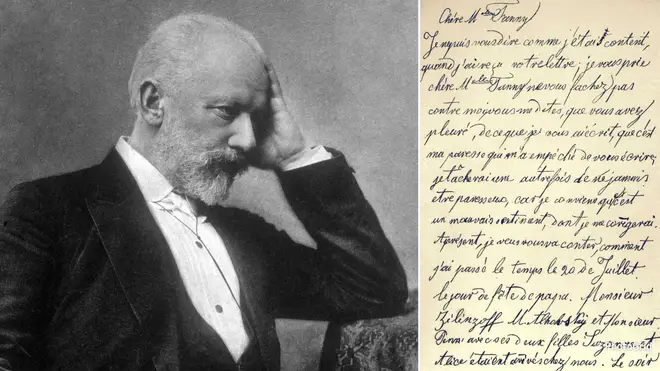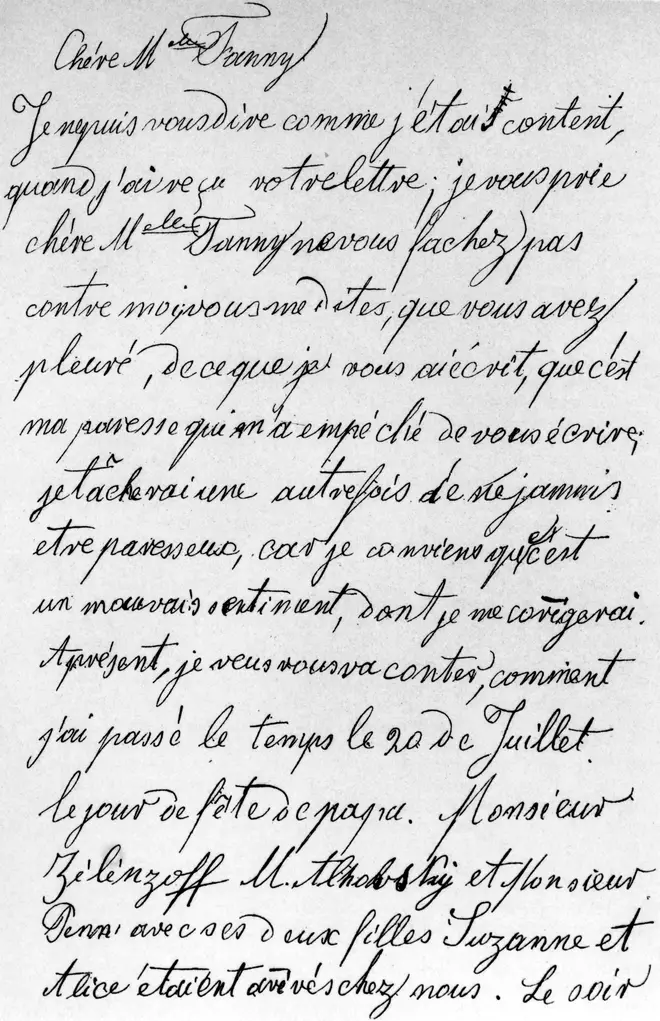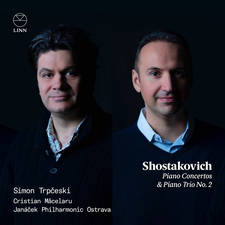Tchaikovsky, composer of the world’s most uplifting ballets, had crippling self-esteem issues
24 January 2022, 16:51 | Updated: 26 January 2022, 10:08

Tchaikovsky’s personal life didn’t always match up with the magical and joyful world of his music.
Listen to this article
Pyotr Ilyich Tchaikovsky is often coined as the first Russian composer to make a lasting impression internationally with his music.
His music is remembered for being joyful, energetic, and uplifting; but Tchaikovsky’s life didn’t always reflect his music. What many listeners aren’t aware of, is the composer’s long-term struggle with his mental health.
Born in 1840 in the small industrial Russian town of Votkinsk, Tchaikovsky was part of a family with a long history of military service.
On the first show of Dr Alex George’s Inner Harmony, Dr Alex touches on Tchaikovsky’s childhood saying, “Although [Tchaikovsky] was supremely talented, he was very much affected by an early separation from his parents.”
Tchaikovsky was sent away to boarding school at the age of just 10 to prepare him for a career as a civil servant, and this early separation from his mother specifically caused severe mental anguish for the young Tchaikovsky, which only intensified after her sudden death just four years later.
Read more: 10 of Tchaikovsky's best musical masterpieces (and why)

Dr Alex George presents 'Inner Harmony' on Classic FM
Tchaikovsky became part of the premiere class of the Saint Petersburg Conservatory at the age of 21, allowing him to leave behind his three-year career in the civil service and thrive as a composer.
The composer’s first musical setback came when he was a new graduate from the conservatory. Tchaikovsky submitted his First Symphony for performance by the Russian Musical Society in Saint Petersburg.
His former teachers, Rubinstein and Zaremba refused to consider the work unless substantial changes were made, which heavily distressed the composer, as he felt he had been treated as though he were still their student, and subsequently withdrew the symphony. The work wasn’t performed in public for another three years, though notably without Rubinstein’s and Zaremba’s changes.
Tchaikovsky’s long battle with crippling insecurity can perhaps be traced back to this moment as a starting point, and this plagued him throughout his career.

Is Tchaikovsky's personal life reflected in this music?
Dr Alex refers to these insecurities in his first Inner Harmony episode, adding that Tchaikovsky also struggled with his “sexuality, and low self-esteem”.
Tchaikovsky was gay at a time when it was illegal in Russia. Even today, despite sexual activity between same-sex couples being legalised in 1993, homosexuality is disapproved of by the majority of the population. The sexuality was only declassified as a mental illness in the country in 1999.
Living in Russia during the 19th century meant that Tchaikovsky had to hide his true attractions, and the contention of the composer’s sexuality was suppressed by historians during the Soviet era.
In order to suppress rumours about his sexuality during his life, Tchaikovsky married Antonina Miliukova in 1877, a disastrous partnership which was a source of misery for both parties. Tchaikovsky did find love however, just not with his wife. Instead with Vladimir Davydov (aka. Bob), the composer’s nephew.
Love letters published in English for the first time in 2018 also show a secret relationship between Tchaikovsky and a young servant. Tchaikovsky wrote he was “more in love [with the servant] than ever”, adding, “My God, what an angelic creature and how I long to be his slave, his plaything, his property!”.
Hiding his sexuality took a huge toll on Tchaikovsky’s mental health and this would eventually lead to the composer’s death in 1893; which historians have long suspected may have been by suicide.

As well as his crippling insecurities, and being forced to hide his sexuality, Tchaikovsky’s self-esteem was incredibly low, even for a composer.
While many composers and musicians often lament the quality of prior performances, or pieces of work, Tchaikovsky is renowned for actively disliking compositions in retrospect.
Tchaikovsky once cuttingly wrote about his 1812 Overture, that it was, “very loud and noisy and completely without artistic merit, obviously written without warmth or love”.
Read more: The 1812 Overture: the hit that Tchaikovsky hated
As Dr Alex concludes in his first episode of Inner Harmony, Tchaikovsky faced many failures and obstacles during his career, “but despite that, he wrote some of the most recognisable classical melodies”.
An incredible composer with a difficult personal life, Tchaikovsky should be remembered for his marvellous music, but also his tenacity to overcome some of life’s biggest hurdles.
























